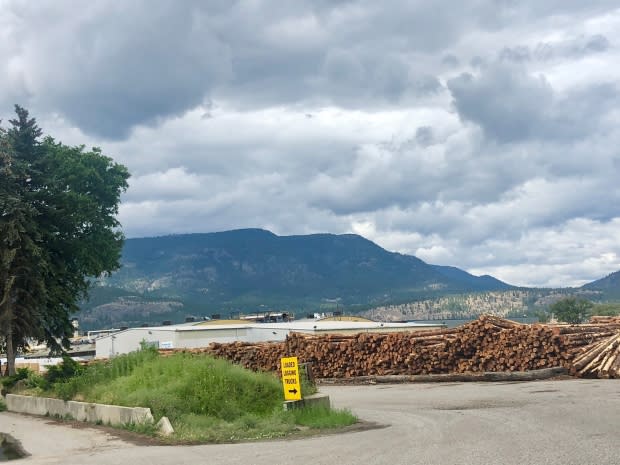'We've been here before': The fight to survive B.C.'s rising mill closures
Canfor's recent announcement it will reduce production at two more sawmills this summer in Prince George adds to a growing list of more than 20 temporary and indefinite curtailments of such facilities across British Columbia, along with several permanent closures.
The downturn in the forestry sector has thrown hundreds out of work, including 150 employees at the Tolko Industries mill in Quesnel, which will close in August, and another 172 workers at Canfor's mill in Vavenby, slated to shut this month.
Workers in the struggling sector and those who govern municipalities dependent on forestry are grappling with the fallout.
The reasons for the downturn are varied. Poor market conditions and log shortages due to outside forces such as the mountain pine beetle and wildfires are causing mills to shutter, leaving towns that are dependent on the lumber industry scrambling to adapt and search for new ways to diversify their economies.
Tolko employee Jennifer Johnson said she was in shock when she learned last month the sawmill she works at in Quesnel will close this summer.
"It's definitely going to be a struggle because there's not a great deal of jobs that have around the same pay or benefits," she said.
Johnson and her family had been planning to buy a house, but that's now on hold.
The last day of work will be tough for her and the rest of the staff. "There's probably going to be some tears shed I'm sure," she said.
No surprise
Johnson's story is common across B.C.
Doug Donaldson, B.C.'s minister of forests, lands, natural resource operations and rural development, said he isn't surprised by the closures and drastic reductions in operations.
"These curtailments and shutdowns were the result of natural and global forces, and they didn't happen overnight, and that's what's so frustrating," Donaldson told Daybreak North host Carolina de Ryk.
A weak U.S. housing market and low harvest levels because of mountain pine beetles, as well as wildfires and land used for caribou protection, are some of the primary factors affecting the industry, said Harry Nelson, an associate professor at the University of British Columbia's faculty of forestry.
"Our main market is the U.S.," said Nelson. "Essentially, we've had pretty good U.S. housing markets improving over the last few years, and they've just become much weaker this past spring.
"And as demand has come off [for timber], prices have as well too."
Add that to a low supply of timber, and the industry is struggling to get by.
Surviving a closure
Tolko's upcoming mill closure in Quesnel is a big hit to the Cariboo city with a population of 23,000.
Mayor Bob Simpson said the city was expecting it. The annual allowable cut for timber was decreased about two years ago, and Tolko had been struggling, he said.
"That sense of surprise still settles in because you don't want to believe it's going to happen, but as a [city] council, we said it's going to happen," said Simpson, former forestry critic for the B.C. NDP, in 2009.

Canfor closed its mill in Prince George in 2014, and other mills had experienced closures and reductions in operation prior to that, so council began planning for this transition five years ago.
"We've been here before and we have a transition team in place based on the lessons learned from that," Simpson said.
In its last term, city council implemented a three-year tax freeze on the industry at 2014 levels to try to make the city less dependent on it, said Simpson.
"If we hadn't done that, then the impact of a Tolko closure would have been much more catastrophic than it's going to be. It will be around a $400,000 loss to the city when they fully decommission the mill."
Diversifying
The city is trying to diversify its economy by growing its agriculture and tourism sectors, but the mayor still considers Quesnel a forestry town.
With West Fraser's large sawmill, two pulp mills, and medium density fibreboard operation, as well as the C and C Wood Products operations, Simpson believes there is enough variety in forest manufacturing for it to remain a foundation of the city's economy.
"We have the luxury — and it's the fundamental difference between ourselves and say the Clearwaters, or even 100 Mile Houses — we have the most concentrated diverse manufacturing in the forest sector all in our community," said Simpson.
In May, the province passed a bill to amend the Forest Act, which gives it the right to review forest tenure transfers between companies.
Tenure swaps now have to pass the Ministry of Forests, Lands and Natural Resource Operations's public interest test. It also creates the opportunity for more tenure to go to First Nations and communities, said Donaldson.
In the short term, the province is trying to help workers who have lost their jobs by connecting them with Service Canada, Work B.C. and retraining opportunities, he said.
"But we also want to see the mills get up and running again."

